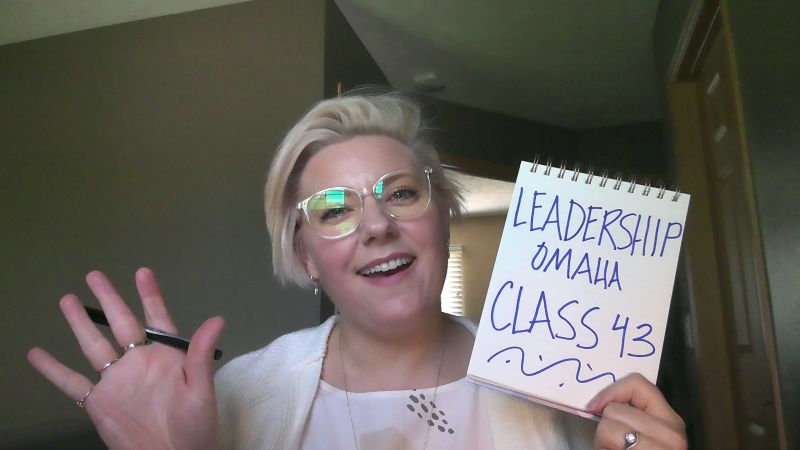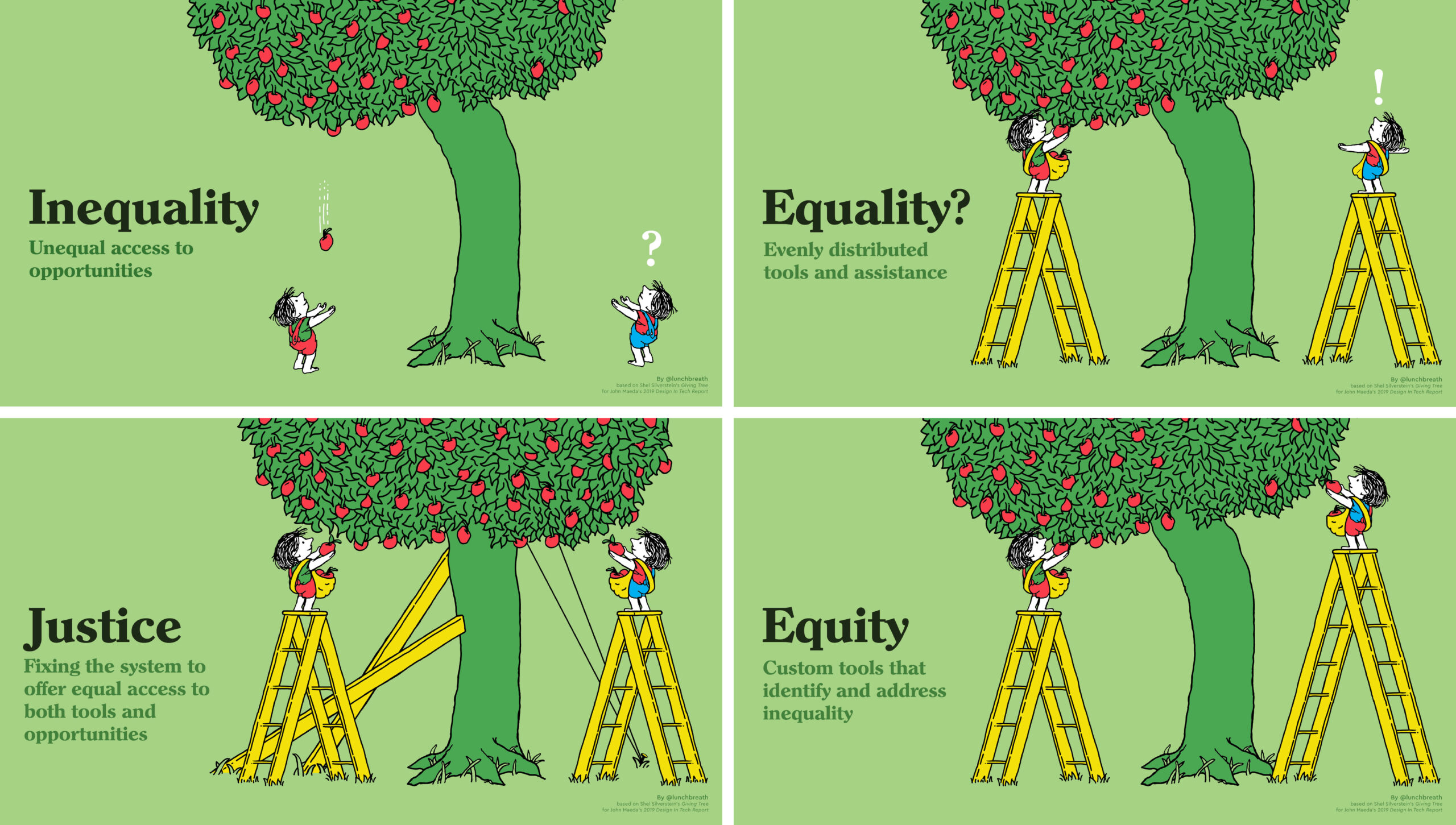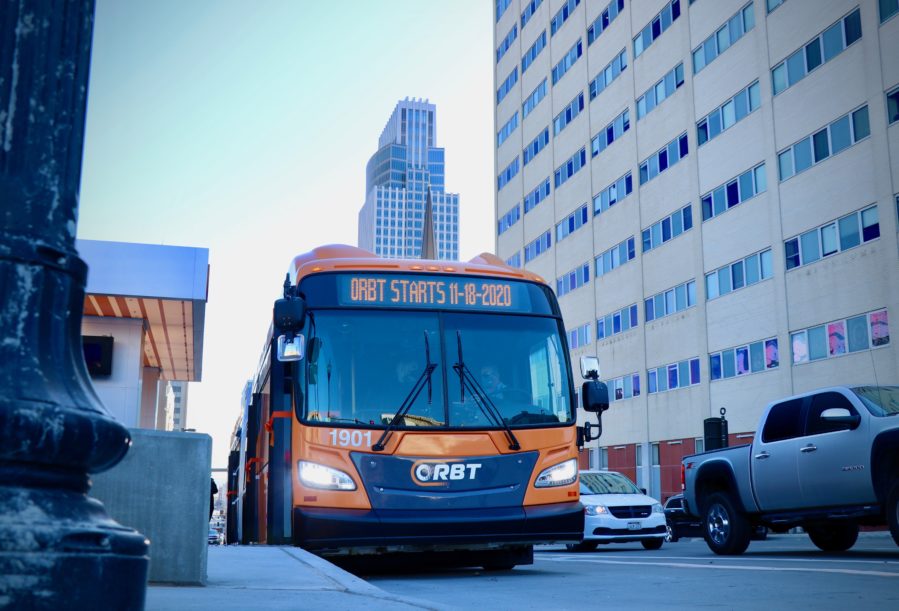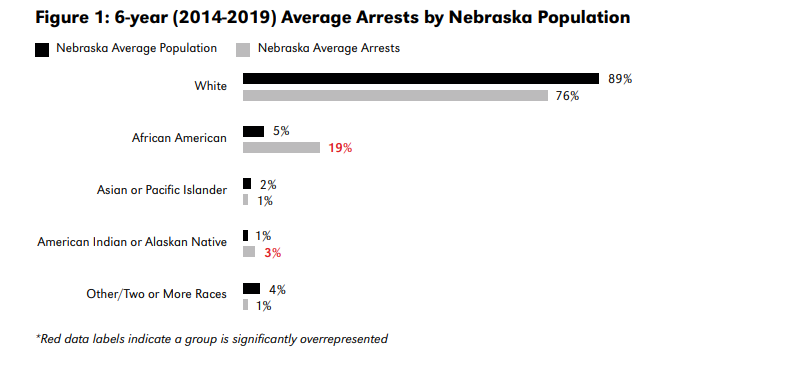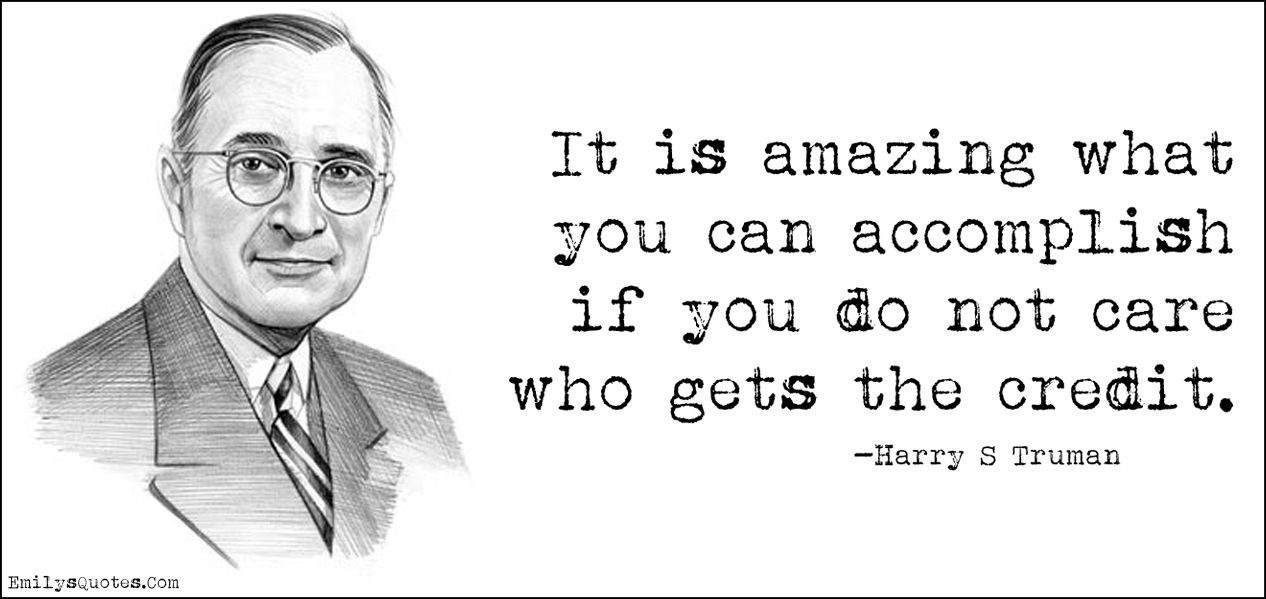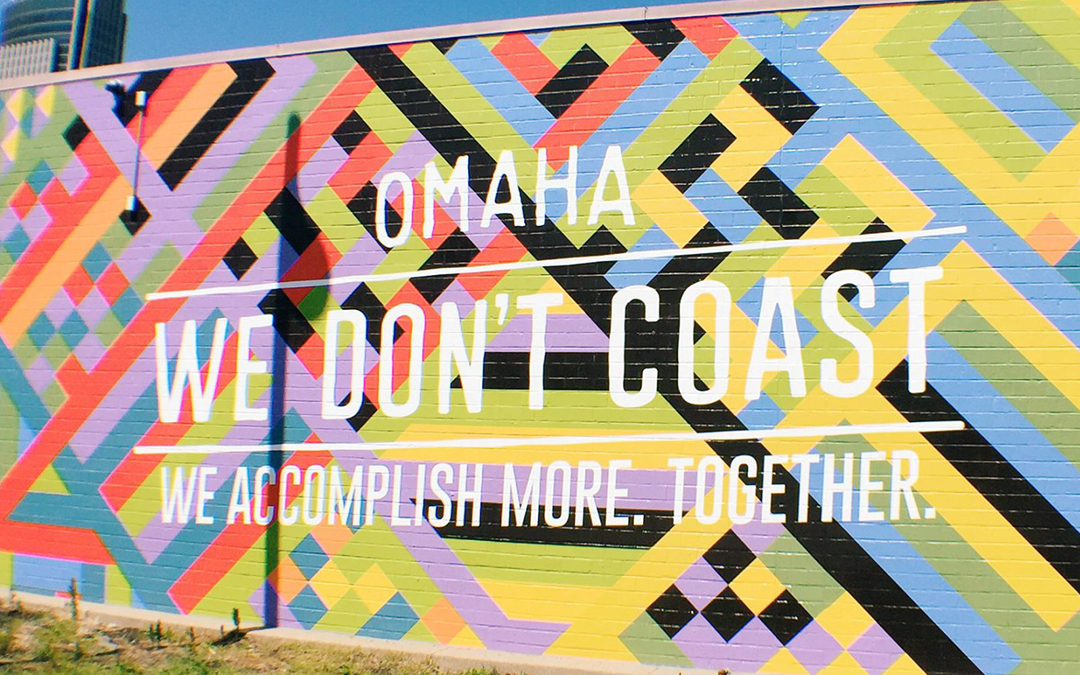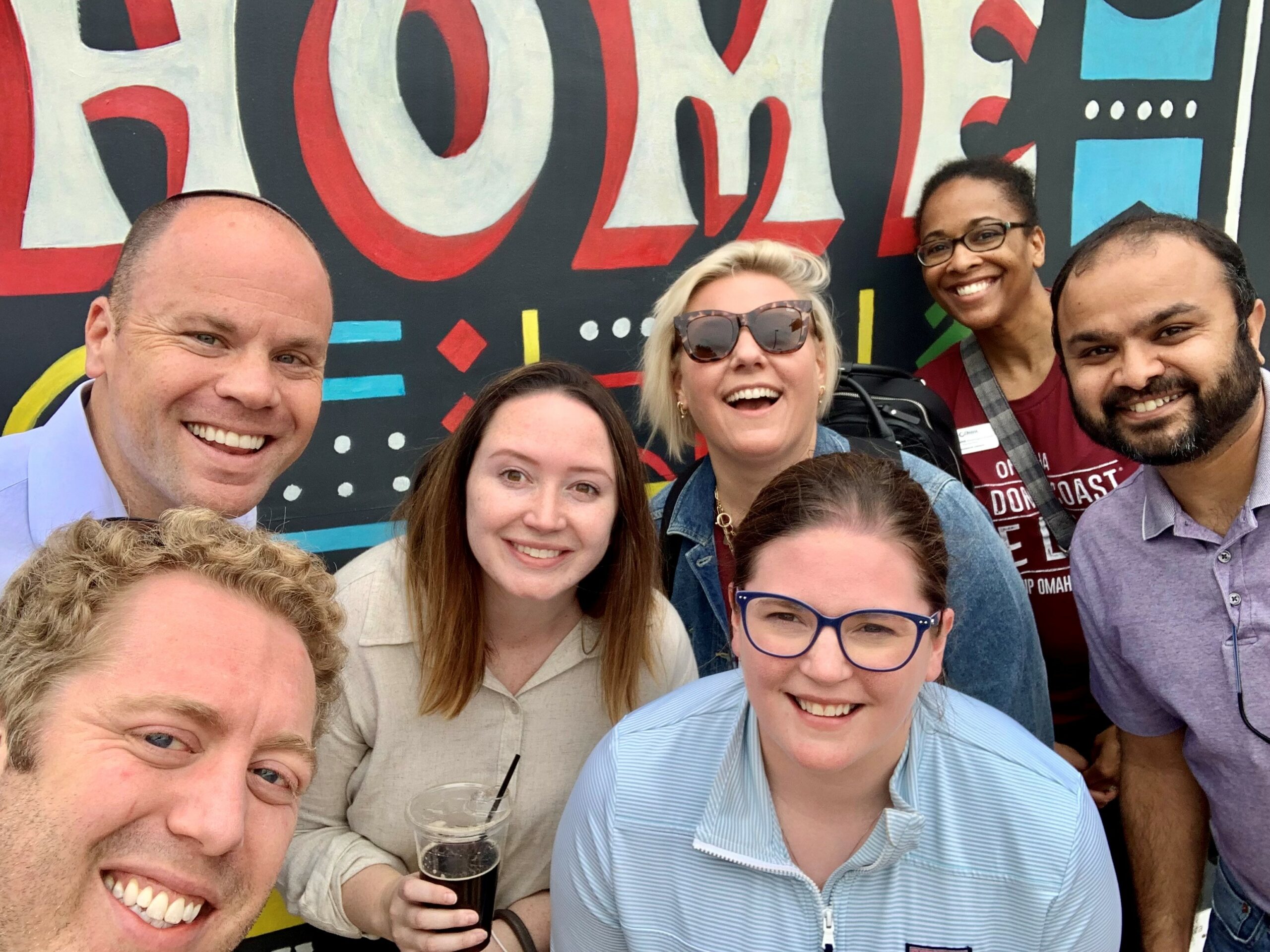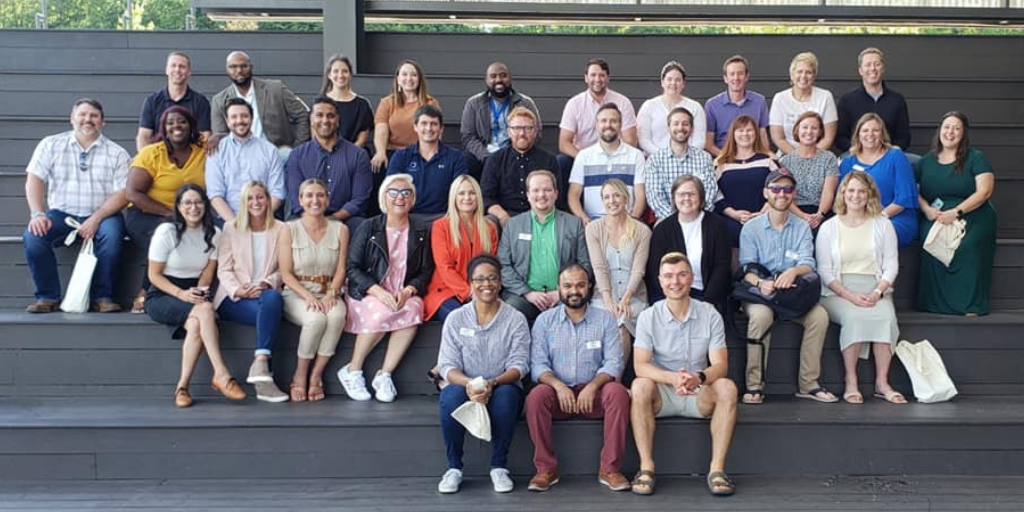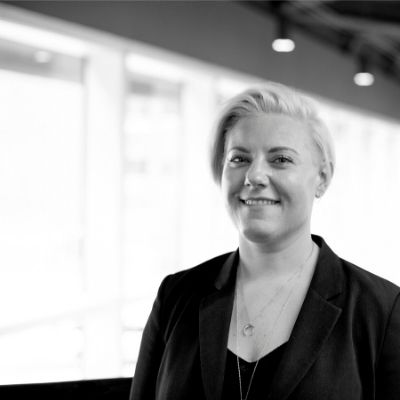Leadership Omaha is one of the longest running professional development programs at the Greater Omaha Chamber. Since 1978, participants have immersed themselves in a 10-month learning experience focused on molding them into more effective community leaders.
This year, we’re getting a look inside. We’ll follow Erin Van Zee, Communications Director at RDG Planning & Design, as she takes this 10-month journey.
September
Can everyone hear me?
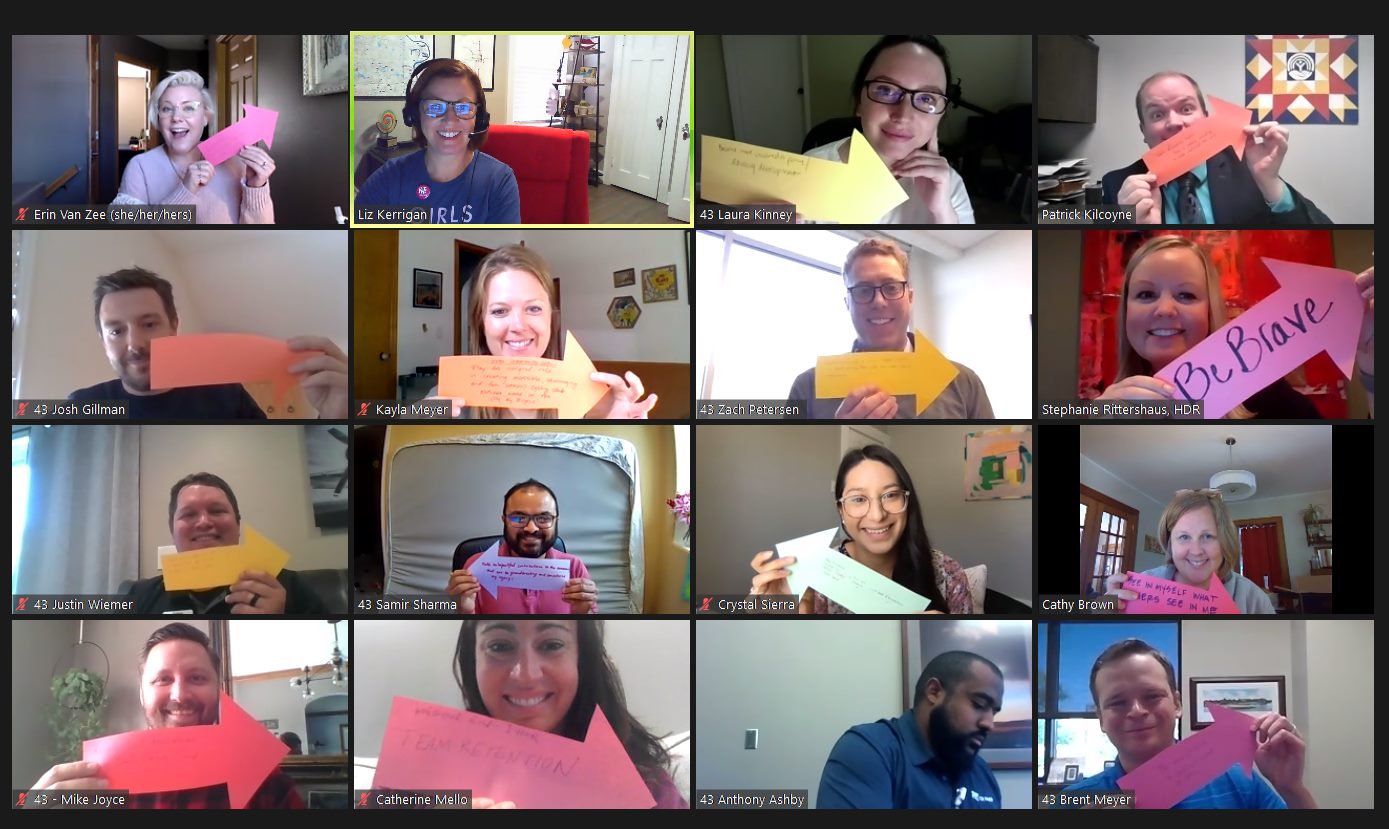
I’m told the Leadership Omaha retreat experience is usually where strong bonds are forged, as adults gather in a camp-like setting getting very kumbaya. And while you might think the same can’t surely be true for a group of nearly 50 people gathered over Zoom, I think LO Class 43 might beg to differ.
Though our retreat was entirely virtual, we still danced, we still laughed.
We had deep and difficult conversations.
We shared our hope for Omaha’s future.
For LO Class 43, as with everyone living in 2020, the state of the world looms heavy and large. But coming out of this first retreat, one thing is abundantly clear to me: though we might not be together physically, this diverse group of creative and compassionate individuals are collectively poised to make a real difference in our community.
I can’t wait to see where the year takes us. #VirtuallyTheBestClassEver
October
A Better Normal

LO Class 43’s latest session was FULL. Not full as in there were a lot of people – full as in we covered a lot of ground. Drs. Ali Khan and Adi Pour and Douglas County Election Commissioner Brian Kruse all took the time to speak with us, the significance of which is not lost me given where we are at this moment in time.
Our discussions recall the central ethos of Leadership Omaha: that this diverse group of people with different ideas, experiences and opinions, are coming together to create something that will ultimately make our city and ourselves better. A tall order, yes, but one I think LO Class 43 is more than capable of accomplishing.
Mindfulness guide Daniel Lawse used a mantra to close out our session, and I think it’s well-suited for these turbulent often divisive times, so I’ll leave you with it: may you be safe, may you be happy, may you be healthy, may you be at peace.
#VirtuallyTheBestClassEver
Class 43 started this month’s Leadership Omaha session by breaking out into small groups and crafting haikus that describe something quintessentially Omaha (e.g. foods, landmarks). This creative endeavor helped jumpstart our energy for the day, which involved meaningful discussions on diversity, equity and inclusion. We heard from a host of organizations and individuals, including Inclusive Communities, CODE, a panel of local D&I leaders and residents and caregivers at QLI, the latter of which provided truly moving moments I will carry in my heart forever.
It’s clear from our conversations that we have a lot of work to do—work on ourselves and work in our communities—to create a truly diverse, inclusive, equitable and just world. It’s encouraging to see that there are people all around us doing the work every day and that we have an open and standing invitation to join them.
As a reflection on our discussions, I’d like to close this blog entry the same way we opened our November session: with a haiku.
seeking to create
a just, equitable world
our city made whole
December
There’s No “I” in ORBT
Image c/o the ORBT Rider Guide
To say Class 43’s “Business and Economic Development” session was jampacked would be, I think, an understatement. We started by hearing from representatives from the Greater Omaha Chamber; following that, we had a roundtable discussion with some local business owners (including LO Class 43-member Candice Price, who owns Home Team Auto Sales); after lunch, we heard from transportation experts (including city planning legend Marty Shukert, FACIPC, who I also have the privilege of working with at RDG Planning & Design); we closed the day with a panel on housing and community development facilitated by City of Omaha Senior Attorney Jennifer Taylor.
Lots and lots and lots and lots of information to digest and consider. Lots.
What struck me most throughout all of these conversations is how inextricably linked each of these elements are, how vital each is to creating the kind of city in which I want to live – a city that supports small business, especially small businesses owned by women and people of color; a city that offers equitable access to well-designed affordable housing; a city with quick and easy public transportation that empowers people to lower their carbon footprint.
Many of these elements already exist or are in the works for our city, and all are within reach. What heartens me is the knowledge that there are people in Omaha working to make this dream city a reality and, perhaps more importantly, that the chance to contribute to these efforts is there and ripe for the taking.
January
The RED Problem
When Liz Kerrigan warns you not to wait until the last minute to start the prework for the upcoming Leadership Omaha session, you know it’s going to be an eventful day. Leadership Omaha Class 43’s session on Justice was indeed a day full of deep-dive discussions and difficult conversations exploring the racial and ethnic disparities (aka RED) present in our justice systems. We heard from Dr. Ryan Spohn from UNO’s Center for Justice Research and Dr. Mark Foxall, Community Service Associate at UNO on the racial disparities in prison populations; going deep into data about who is system-involved and why; and the mental health effects of incarceration.
We also spoke with representatives from RISE, a Nebraska-based program that prepares people in prison for a successful reentry into the community, and heard from Nick Juliano, president and CEO of the Nebraska Youth Justice Initiative and Kim Hawekotte Douglas County Administrator of Juvenile Services. So much of our conversations centered around the central theme of humanity – viewing incarcerated people not as statistics or even as defined by their choices but as human beings with endless potential to become better than they were the day before.
And, for all the data and objective information (which is, of course, essential to our understanding and work towards fixing the deficits in our justice system), the most meaningful portion of the day came when we spoke with four young men currently residing in the Nebraska Correctional Youth Facility. As one individual put it when asked what he wants to do once he’s released, “I want to go to college, so I can become a counselor and be there for kids. Because I didn’t have someone there for me.”
The title of this month’s Leadership Omaha blog is derived from a pre-work exercise we did called “Spent.” Spent is an online game about the challenges brought forth by poverty; throughout the simulation, players must make a series of difficult decisions necessary to live one month on very little money, often having to choose between equally disagreeable options. It was an illuminating and important precursor to this month’s themes: education and human services.
We were joined by several community leaders from various non-profit organizations who work to advocate for the children and families in our city. Each provided their own unique insight into how our local education and human services organizations coordinate to create innovative and timely local responses that can have a real impact on those who need it most.
Of all the discussion we had that day (and there were many), the piece of advice that stuck with me most came from our OPS Superintendent, Dr. Cheryl Logan (listen to an interview). Dr. Logan has navigated our city’s largest school district through what may be the most unnavigable year. She has a lot of experience leading, often having to make difficult and sometimes unpopular decisions.
So, when she gives leadership advice, we listen. And she left us with this piece of advice that I feel will surely stick with me as I move forward in my own leadership journey: “It’s amazing what you can accomplish if you do not care who gets the credit.” Often attributed to President Harry S. Truman, the quote feels prescient in that it calls us do the work of bettering our community, not because we want fame or notoriety, but because it’s the right thing to do. Regardless of where we work, how much money we make, what we do for a living, we all have the power to make our city better – to help ensure that fewer families have to choose between equally disagreeable options in order to survive.
The quickest way to give someone like myself (a right-brained, creative writing, English major-type) a permanently furrowed brow and elevated heart rate is to simply invoke two words: budget simulation. This month’s Leadership Omaha seminar promised to give “insight into the workings of city government.” What could go wrong?
We broke out into two teams, each forming the government of a fictional city called Ahamo – with its own mayor, group of department heads, city council members, lobbyists and reporters. Our governments were given one task: work together to prepare and approve a balanced budget.
It feels like an impossible task to establish a budget that makes everyone happy. And, of course, it is an impossible task. As in real life, everyone in our simulation had their own priorities and agendas. The obligations, demands and priorities of our fictional government and its actors were often at odds with one with another. Some of us were more successful than others in getting what we wanted. Even though there were moments when we struggled, we worked to find a compromise wherever we could.
As the crease in my brow began to disappear and my heart rate slowed, I came to see the real value in the exercise. I had a new appreciation and empathy for the massive undertaking our local elected officials and leaders encounter when preparing Omaha’s annual operating budget. Turns out, you can learn a lot about a government by reviewing its budget and even more by preparing the budget yourself. Lesson learned.
This month, we were excited to hear from a group of Leadership Omaha alumni about their experience with the program and how it impacted the trajectory of their civic, professional and personal lives. Several alumni have gone on to lead non-profits or dig deeper into their volunteer work with local organizations. It was heartening to hear how their experience in Leadership Omaha not only inspired them to become more active within the community, but also to see how the connections they made in the program continue to grow and flourish.
Throughout these conversations, it was immediately evident that Leadership Omaha has historically created a strong sense of comradery between its classmates. An overarching theme that emerged from our small group break out room discussions was something I’m sure many people (in Leadership Omaha or otherwise) can relate to: we miss being able to get to know each other in in-person, face-to-face settings.
Class 43’s all-virtual Leadership Omaha experience is wholly unique – with a few exceptions, many of us have never met each other #IRL. If there was one key takeaway from our last session, it’s that as a group, we have a strong desire to build on the foundations of our virtual engagement and find ways to deepen our connections with one another through intentional, in-person get togethers. Lucky for us, there are plenty of leaders in Leadership Omaha Class 43 and before we had even concluded our session, we had our first in-person, lunch scheduled.
I can’t wait to meet all these people again for the first time.
This month’s “City Environment” session marked the second-to-last time Class 43 will meet before we officially graduate from Leadership Omaha next month. Hard to believe that we’ll soon be marking the end of our time in the program. Like so many experiences in the middle of the COVID pandemic, the time has gone inexplicably fast and slow all at once.
This session (which would have been our first session had it happened in the before times) involved meeting, in person (yes, in person) as small groups to visit a set of locations across the city. There are so many dedicated people working incredibly hard to make Omaha a city that’s diverse, accessible and inclusive in revolutionary ways. The fact that the process of meeting face-to-face also allowed Class 43 to get an inside peek at places like the Benson Theatre, Seventy Five North, El Museo Latino and Historic 10th Street only made our May session experience that much better. We got to put on our tourist hats for a bit and explore the amazing work being done in and around our city—and, at long last, we got to do it together.
We did it, Class 43 – we officially graduated from Leadership Omaha!
Last week, we marked the final official session of our time together. As we say farewell to our time in Leadership Omaha, I want to tell each and every one of you how grateful I am to have spent this time with you.
Was it a normal Leadership Omaha experience? Not in the slightest.
Do I feel a little wistful thinking about the bonding we missed out on by having our entire program over Zoom? Sometimes I do.
Will I still miss seeing you each month? Absolutely, I will.
To witness the digital camaraderie manifest as real-life fellowship at our LO graduation (where some of us met in-person for the first time), only solidifies how important a program like this is. We started Leadership Omaha as 49 strangers, looking to make the best of a situation none of us could have imagined; we ended Leadership Omaha as a community of people united by a shared responsibility to take what we’ve learned and move our city forward. It’s an experience I would whole-heartedly recommend to anyone who asks.
Many LO alumni will say their class is the “best class ever,” and I’m sure, year after year, that ends up being true. None but us, however, can say they are the best quarantine class ever. Thank you for being a part of this unique Leadership Omaha journey – for sharing your ideas and being vulnerable, for asking challenging questions and being willing to have difficult conversations, for being open and honest and going along for the ride, odd as that ride may have been.
I envision great things from Class 43, and I could not be prouder to have been a part of it with you.
Erin Van Zee
Erin Van Zee is the communications director for RDG Planning & Design, where she oversees the firm’s global communications and PR strategies. An (almost) native of Nebraska, Erin has lived in Omaha for nearly 30 years. She earned her Bachelor of Arts in English and a Master of Arts in English with an Advanced Certificate in Technical Communication and Information Design from the University of Nebraska Omaha. A passionate believer in the power of community engagement and a strong advocate for diversity, equity and inclusion, she serves as vice president of the board of the Latino Center of the Midlands, as programming co-chair for the board of the Public Relations Society of America – Nebraska Chapter and is a regular reader for Radio Talking Book Network, an organization that provides human-voiced information to individuals who may be blind or visually impaired. If all she had was free time, she would spend all of it enjoying the outdoors with her husband Tyler and their two pups Ziggy and Zelda and fellowshipping with her immediate family here in Omaha.
Be the leader you know you can be.
Leadership Omaha gives community leaders a chance to shine. If you have a vision for the future of Greater Omaha, then this is the program for you.

